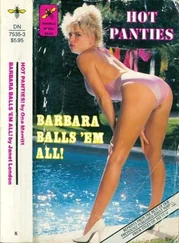Wall Street was on fire, and Buffett was running toward the flames. But he was doing so with the expectation that the fire department (that is, federal government) was right behind him with buckets of bailout money. As Buffett admitted on CNBC at the time, "If I didn't think the government was going to act, I wouldn't be doing anything this week."
Indeed, Buffett needed the bailout. Goldman was not as badly leveraged as some of its competitors, but the crisis was so serious that it was in danger and in need of a government infusion. And beyond Goldman Sachs, Buffett was heavily invested in several other banks that were at risk and in need of federal cash.
He began immediately to campaign for the $700 billion TARP rescue plan that was being hammered together in Washington. The first vote on the funding bill in the House of Representatives failed. But Buffett was in a unique position to help reverse its fate.
Warren Buffett is highly respected in political circles. During the 2008 presidential campaign he was in the unusual spot of being mentioned as a candidate for Treasury secretary by both John McCain and Barack Obama. Buffett made it clear where his loyalties lay: he had been an early financial supporter of Barack Obama's going back to 2004, when Obama had first run for the U.S. Senate and the two men had met. Each had been impressed, and Buffett said at a fundraiser in Nebraska that the two "had a lot of time to talk." In 2008, presidential candidate Obama made it clear that while he got plenty of advice on the campaign trail, "Warren Buffet is one of those people that I listen to." Obama added that he was one of his "economic advisers." 3
Buffett's role was important too in that several senators and representatives were shareholders in Berkshire Hathaway, and they had to know that passing the bailout bill would bring big returns for their Berkshire stock. Senator Ben Nelson of Nebraska, for example, held between $1 million and $6 million in Berkshire stock, by far his largest asset. 4Initially resistant to the bailout bill, he ended up voting in favor of it after Buffett bought into Goldman. There were many legitimate reasons to support the bill, and it can hardly be said that Buffet's support was the deciding factor. But his Baptist-bootlegger position was noteworthy for its strength in both directions: a lot of people followed his advice, and he and they made a lot of money by pushing for the bailout.
Throughout the financial crisis and the debate over the stimulus in early 2009, several members of Congress were buying and trading Berkshire stock. Senator Dick Durbin bought Berkshire shares four times in September and October 2008, over a three-week period, up to $130,000 worth. He bought shares during the debate over the bailout, during the vote, and after the vote. Senator Orrin Hatch bought the stock, as did Senator Claire McCaskill, who bought up to half a million dollars' worth just days after the bailout bill was signed. Some also followed Buffett by buying shares in Goldman Sachs after the bailout. Among them were Congressman John Boehner, Senator Jeff Bingaman, and Congressman Vern Buchanan. In other words, the naked self-interest of the lawmakers who shorted the market based on Ben Bernanke's briefings in September 2008 became more twisted in late 2008 and early 2009: Buffet urged passage of the bailout and put his money where his mouth was, and members of Congress listened to him and invested with him.
Early on in the financial crisis, candidate and Senator Barack Obama had been cautious and lukewarm about a possible bailout. But in the days that followed Buffett's multibillion-dollar play for Goldman Sachs, and with a mounting fear of economic collapse, Obama became a powerful champion of the government rescue. As the top Democrat in the country, he had an important vote. The New York Times reported that Senator Obama had "intensified" his efforts to "rally support for the $700 billion financial bailout package" after September 28, 2008. The plan was necessary, said Obama, "to safeguard the economy." 5
Publicly, Buffett struck a posture of political disinterest. "I'm not brave enough to try to influence the Congress," he told the New York Times. 6 But his actions directly contradicted his words. Days later, Buffett held a conference call with House Speaker Nancy Pelosi and House Democrats during which he pushed them to pass the bill. We faced "the biggest financial meltdown in American history," he warned wavering Democrats. 7
The stakes were high for Buffett personally. If the bailout went through, it would be a windfall for Goldman. If it failed, it would be disastrous for Berkshire Hathaway. Buffett also had large investment stakes in Wells Fargo and U.S. Bancorp, banks that were suffering in the crisis.
The first vote failed, as Washington faced enormous heat from voters angry about the prospect of bailing out Wall Street. On the eve of a second TARP vote in the House, Buffett moved toward the fire again when he bought a $3 billion stake in corporate giant General Electric. Again, as with Goldman, he was able to negotiate advantageous terms, receiving a 10% dividend on his shares. He could also buy $3 billion in stock at discounted terms if he wanted. 8GE was in even worse financial shape than Goldman, thanks to its financial arm, GE Capital. Eventually it would need $140 billion in taxpayer capital to stay afloat.
Buffett is a genius at public relations. He said he had "confidence in Congress to do the right thing." He appeared to be a savior of Goldman Sachs and GE. He gave members of Congress more reason to join by supporting such firms.
With the passage of the Emergency Economic Stabilization Act, the Treasury Department had $700 billion to make available to financial institutions, and with it the unprecedented authority to pick winners and losers. Access to TARP money was not guaranteed. And the terms of the loans were unclear. There was no transparency and no openness to the process. As the economist Robert Kuttner put it, the TARP proceedings were "being done largely behind closed doors, and the design is by, for and in the interest of large banks, hedge funds, and private equity companies. Because there are no explicit criteria, it's very hard to know" if anyone got special treatment. The entire process, he said, "reeks of favoritism and special treatment." 9
Having the correct political connections was critical, as usual. A study conducted by four researchers at the Massachusetts Institute of Technology documented the power of those connections as a general phenomenon, before the TARP program began. When Timothy Geithner was announced as President Obama's nominee for Treasury secretary, it "produced a cumulative abnormal return for Geithner-connected financial firms of around 15% from day 0." The stock market reflects the cumulative thinking of all investors, and they assumed Geithner would be able to reward his friends directly or indirectly. Conversely, when there was word that Geithner's nomination might be derailed by tax issues, those same firms were hit hard with "abnormal negative returns." The MIT researchers systematically examined firms that had corporate ties to Geithner, had executives who served with him on other boards, or had other direct relationships. According to the researchers, "The quantitative effect is comparable to standard findings" in Third World countries that had weak institutions and higher levels of corruption. 10Think of it: our markets react to these government actions the same way they do in a corrupt developing country. Crony capitalism pays, and the market knows it.
Of course Buffett was not the only one connected in Washington. Goldman Sachs also had a direct line to Treasury Secretary Hank Paulson, its former managing partner, as well as incoming officials in the Obama administration. But Buffett was far better liked by the American public than the executives at Goldman Sachs. Politically, he was a far more effective advocate for bailout funds than Paulson could ever be.
Читать дальше











